Genre: Biopic
Premise: (from Black List) The true story of 25-year-old Joanne Rowling as she weathers first loves, unexpected pregnancies, lost jobs, and depression on her journey to create Harry Potter.
About: Today’s script finished high on 2017’s Biopik List – er, Black List – with 20 votes (no. 6 overall). The writer, Anna Klasen, is a newbie. She got some attention earlier in the year for a pilot she wrote. But this is effectively her breakthrough screenplay.
Writer: Anna Klassen
Details: 116 pages

I chose today’s script for a very specific reason.
Motivation.
J.K. Rowling is the greatest success story in literary history. Between the money she got from writing the Harry Potter series and receipts from the movie adaptations, Rowling’s net worth is said to be approaching 1 billion dollars. Just think about that for a second. For typing words on a piece of paper, someone has made 1 BILLION dollars. I don’t know about you but I think that’s pretty damn cool.
And yet today’s script isn’t about counting checks. It’s about the less heralded aspects of writing. The perseverance that’s required. One’s ability to overcome doubt. Not listening to the more “practical” minded people around you. Taking on the devil known as Procrastination. It’s conquering those little things that nobody outside the arts understands.
When Lightning Strikes does this really neat thing in its final scene. It shows Joanne (as she’s introduced here) sitting down to finally write Harry Potter. It then flash-forwards to all of her amazing successes (climbing to the top of the best seller list, going to the premier of the first movie, signing books for adoring fans) and then cuts back to her in that room, alone, before any of it has happened, before she’s typed a word. For all she knows, this book will sell 10 copies. It’s a powerful reminder of why we do this – because amazing things can happen on the other side of those pages.
25 year-old Joanne Rowling works in the refugee branch of Amnesty International. She’d be helping less fortunate people find better lives if she wasn’t so achingly awful at her job. Joanne’s a scatterbrain – her mind always 20 minutes behind or 20 minutes ahead of where everyone else is. This makes her ineffective to the point where she gets fired.
The bad news keeps dumbledoring when Joanne’s mother dies after a long illness. Her mom, it turns out, was the only person who encouraged Joanne to write. So losing her is a major blow.
Joanne is so eager to escape England, she takes a teaching job in Portugal, a country she knows nothing about. Once there, she meets a scholarly rogue named Jorge, a guy she kind of likes, but whose constant drinking leaves her unsure if he’s the one. And then she gets pregnant.
While the weight of that situation settles in, Joanne keeps getting ideas for a book about a boy who goes to wizarding school. But that’ll have to wait while she gets married and tries to manage life as an adult. However once her child’s born, Jorge’s drinking gets worse, and she decides to leave him and the country forever, flying back to the UK.
With no jobs and no prospects, an increasingly depressed Joanne must apply for state financial aid. Things get so bad she even considers suicide. However, something keeps driving her to write that story about the boy who goes to wizarding school. So she takes out the box of all the paper scraps and knick-knacks she’s written ideas for the book on, and begins to write what will become the most popular book series in history.
I don’t know the difference between a Hermione and a Dumbledore, which makes me the perfect person to read this script. I can judge it on its story alone, and not on how slyly the writer references the inspiration behind Severenus Snape. Let’s face it. Ever since “George Lucas in Love,” the formula for these scripts has become as predictable as a Quidditch Match between Gryffindor and Wimbourne.
But what’s unique about “When Lightning Strikes” is that, despite being about the most famous author in the world, there isn’t any writing in it! That’s smart when you think about it. As we’ve established here before, the act of writing is one of the most boring things in the universe. It’s hard to dramatize. So what better way to get around that than to not show it?
The question then becomes, is a non-writing JK Rowling’s life interesting enough to watch an entire movie on? That one I’m not so sure about. One of the first things I do after reading a script about a famous person is ask, “Would that have been interesting had the person not been a celebrity?” Does the story work on its own? Or does it only work because you know this is going to become JK Rowling? If you’re leaning on that the whole script, you’re not making your story as good as it can be.
And the juiciest parts of JK’s journey – while good enough for a documentary or a TV movie – weren’t exciting enough to merit the feature treatment. For example, we have Jorge. Jorge is a drunk. And one night, while drunk, he hits Joanne. She’s devastated, takes her child, and leaves the country. I’m not saying hitting someone is okay. But I guess I was expecting the abuse here to be more of a constant if it was going to affect the story that much? Not a one-time drunken thing.
Or there was the stuff about JK having depression. All we get there is Joanne admitting to a therapist that she sometimes thinks of harming herself, and then a later scene where she looks at a razor for three seconds. “When Lightning Strikes” wants so badly for you to feel its weight and yet it never pushes down. Looking at a razor for three seconds doesn’t convince me that Joanne is suicidal just as a single drunken tussle doesn’t convince me that Joanne endured an unbearable abusive relationship. Even when she was on government aid, I never felt like Joanne was in danger.
And with these stories, that’s the objective. The journey can’t just feel difficult. It must feel impossible. We have to wonder how the main character is going to overcome this. Because remember, we already know that JK Rowling becomes a billionaire. So if she’s not overcoming impossible obstacles to reach that point, why is that a story worth telling? If her journey is only “kinda hard,” is it one the world should hear? Or is it better left to a Wikipedia entry?
With that said, When Lightning Strikes gives us plenty to think about as writers, starting with the title. “When Lightning Strikes.” Is that all zeitgeist novels and films are? Lightning in a bottle? Are our digital documents evenly weighted lottery tickets and nothing more? I don’t think so. I believe that you can align the variables (clever concept, marketable premise, practice practice practice) so that the storm forms around you, increasing the chances that the lightning will strike nearby.
“I’m hoping to do some good in the world.” This is a line Joanne thinks of early in the script and writes down (I’m assuming it was used in the book). I’m not a fan of writing non-specific lines down and then looking for somewhere to put them. Good writing comes organically and the best lines tend to arrive in the moment, as you’re writing the scene. If you’re going into a scene rearranging the characters and the setting and the dialogue rhythm all so you can put in some cool line you thought of 7 months ago, you’re losing the game of screenwriting. Of course, if the line you thought of 7 months ago happens to fit into your story perfectly, use it!
When Lightning Strikes is also a reminder that you’re never going to encounter the perfect circumstances in life for writing. Writers are famous for telling themselves, “Well if I can just cut my hours down at work,” or “If I just had a partner who supported me,” or “Once school is over, I’ll have more time,” or “Once my 4 year old starts school, I’ll have a big chunk of time to write.” Life is ALWAYS going to make writing difficult. And you can’t use that as an excuse. Part of succeeding as a writer is writing when you don’t have the time, when don’t feel like it, when you’re waiting for better circumstances to arise. The next Harry Potter ain’t going to write itself, dude.
While “When Lightning Strikes” offered some slight differences in the writer-biopic formula, it wasn’t enough to get me to cast my best Avada Kedavra spell. This felt too light and feathery. I expected heavier. Now if you don’t mind, I’m going to go google what Avada Kedavra means then decide if I’m Team Ron or Team Harry.
[ ] What the hell did I just read?
[x] wasn’t for me
[ ] worth the read
[ ] impressive
[ ] genius
What I learned: In the opening scene of When Lightning Strikes, which takes place on a train, Joanne gets the idea for Harry Potter and must find a pen so she can write it down. She desperately asks everyone around if they have a pen and no one does. However, she eventually finds one and is able to get the idea down. — I have a controversial belief when it comes to idea generation. If you have to write a movie (or book) idea down to remember it, it’s not a great movie or book idea. If you’ve got a great idea, YOU WILL REMEMBER IT. That’s what great ideas are. They’re unforgettable. If the next day you’re struggling to remember what that “great” idea was, there’s a good chance it wasn’t that great. Which is actually a nice indirect way of filtering out your weak ideas.

Welcome to the New Year!
If you’re anything like me, you’re saying, “What the hell? How did that go by so fast?” You’re probably also wondering how one more year slipped by without you getting any closer to your dream of becoming a professional screenwriter.
Take heed. I’m here to make sure that doesn’t happen again.
The first step in achieving any dream is setting goals. And the first day of the year is a great time to start. You’re rejuvenated. You’re excited. And you have a clear sense of time to work with. I promise you this. If you leave your writing up to a vague set of circumstances, you won’t have anything to target and you’ll be at the exact same place this time next year. So let’s figure out how to set up and execute goals.
Most writers don’t truly understand screenwriting until their sixth script. That’s when your grasp of the various elements specific to screenwriting (dialogue, structure, character-building) finally come together in a way where you can shift your focus to the more important element of screenwriting – telling a good story. “Six scripts” isn’t a hard and fast number, of course. But it’s a good reference point.
Keeping that in mind, you should be aiming to write two scripts a year, or one script every six months. That way, by year 3, you’re a legitimate threat. Some writers ego-write so they can say they’ve written 4, 5, even 6 scripts a year. But I find this exercise to be pointless. Anything written in two months or less, unless you’re one of the better screenwriters on the planet, tends to be thin and dumb. Six months is an adequate amount of time for you to write something legitimately good.
Obviously, six months is different depending on how many hours you write a day. So the math I’m using is 2-3 hours a day 7 days a week. This may seem excessive to some. But all one needs to look at is athletes or skilled professions to see that those people put AT LEAST 2-3 hours a day into their education. The only reason I’m going with this low a number is because I know most aspiring screenwriters have jobs and families. So I’m assuming you’re squeezing out hours whenever you can find them. If you’re one of the lucky few with time to spare, take advantage of it!
In addition to picking your two screenplays to write, find any way possible to hold yourself accountable. Tell a friend you’re going to have a draft for them to read at [said date]. Pick a screenwriting contest for each half-year. E-mail me and tell me you’re going to submit a script to Amateur Offerings on so-and-so date. The more dates you have locked up, the more accountable you’ll feel, and the more likely you’ll be to push through.
Another thing you should aim to achieve is NOT GIVING UP ON YOUR SCRIPTS. When we did the 3-month writing challenge, a lot of people fell by the wayside. They couldn’t keep up with the intense pace. My experience with why people give up on something is that they run into a problem they can’t solve. Maybe a major character isn’t working. Maybe you can’t figure out a key plot point. Maybe you run out of ideas to keep the story moving. You’ll fight for a solution for a few days, maybe a week, decide that it’s too hard, put the script down for a few days. A few days turns into a week. A week turns into a month. And the next thing you know, you’ve given up.
Here’s a secret you may not know about major script problems. They often result in the biggest story breakthroughs. The amount of thought and analysis put into the problem necessitates that you inspect your story on a much deeper level. It’s through that introspection that a new, way better idea than you could’ve possibly imagined, takes hold. So don’t think of these problems as “problems.” Think of them as opportunities for major breakthroughs.
Also, understand that they WILL happen. If your script is easy to write, you’re probably not challenging yourself enough. So have a game plan ready for these moments. Here are a few solutions for problem-solving. Solution 1 is to shift your focus to a different part of the story. Sure, that plot point may be problematic. But there’s no reason you can’t go back and implement those new ideas you had for your main character. Or write around the problematic section of the story, continuing on with the script. If you know exactly what your ending is going to be regardless of the problematic plot point, go write the ending. Often times advancing one section of a script leads to new ideas for another section. So that may be how you solve your problem.
Solution 2 is to simul-write. Instead of writing 1 script for the first six months of the year and a second script for the second six months of the year. Write them simultaneously, bouncing back and forth between the two based on which one is inspiring you more. I know a lot of writers write this way. What happens is that the different scripts jog different components of your creativity, so that when you jump back to the other script, your mind is reinvigorated with new ideas. Just make sure you’re still adhering to a schedule (a page number each day, regardless of which script you’re working on).
Solution 3 is to place-hold. If you have a problem with a character or a plot point, write a place-holder “generic” version of it. You may not love that version, but if it helps you to keep writing, that’s better than giving up on the script entirely. Again, when you write, you’re keeping a continuous stream of ideas flowing through your mind. Which means you’ll be more likely to come up with solutions for that problem, which you can then go back and implement. If you stop writing, you stop the stream. It’s still possible to come up with ideas, of course. But the process will be more “start-stop,” and offer less return on your investment.
In addition to setting goals for your writing, set goals for your learning. Pick 2-3 components of screenwriting that you’ve either been told you’re weak at or that you know are weak, and strive to improve them this year. Maybe it’s dialogue. Maybe it’s learning how to arc a character. Maybe it’s structure. Maybe it’s suspense or GSU (goal, stakes, urgency) or conflict or learning to build during your second act. Make it a goal to master those 2-3 things by the end of year. Read about them. Place special attention on them in your writing. When you get feedback or notes from me, specifically ask how you did in those areas. The more you’re targeting something, the more likely you are to get better at it.
And that’s it. Write hard and write often. Fight the negative voices in your head (“This article from Carson is all well and good, but I take longer to write scripts because I’m different”). You’re all capable of this if you put in the work and the focus. Below I’m including my 3-month schedule to write a screenplay. Simply double the time within each section so that the process equals half a year. Follow it to a “T,” use it as a guide, or use it as inspiration and do it your own way. The most important thing is that you’re not just writing, but producing fully fleshed out screenplays you can send into the world by the end of 2018. Now go forth and kick ass already. You deserve it!
How to Write a Screenplay in 3 Months:
Week 1
Week 2
Week 3
Week 4
Week 5
Week 6
Week 7
Week 8
Week 9
Week 10
Week 11
Week 12
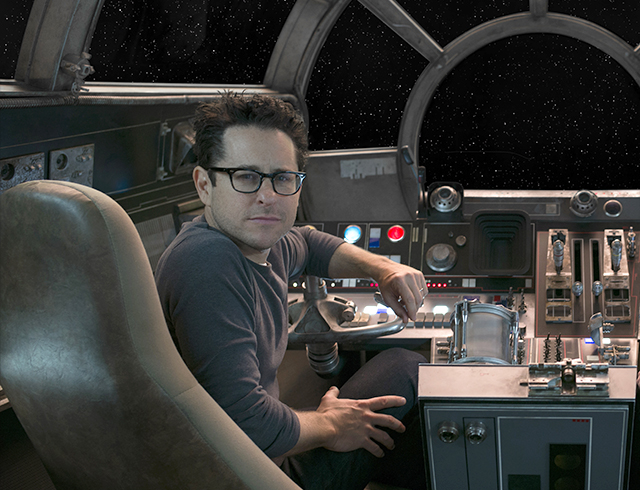
The Last Jedi has had quite the journey over its first week. It was anointed the boldest Star Wars movie ever before it came out. Initial reviews tabbed it as groundbreaking and “maybe the best Star Wars movie ever!” However, people began to notice a strange trend emerging. While the blockbuster had scored a 93% with critics on Rotten Tomatoes, the audience score on the site was a paltry 55%. This led to rumors (even articles) attributing these reviews to a targeted campaign by everyone from original Star Wars fans still living in their basements to the Alt-Right. But as more audience members came away underwhelmed, it was clear that the latest Star Wars movie had problems.
How big those problems are depends on who you talk to. But it’s concerning that even the people who liked the film hated the Canto Bight plot line, which took up an entire fifth of the movie. One place to measure a film’s success is at the box office. The Star Wars franchise is hard to judge since they’re big enough to hit 500 million even with a bad film. But The Last Jedi is an enormous 170 million dollars behind The Force Awakens over the same period of time (first 11 days).
If the box office continues to fall at this rate, Disney will need to make a hard decision. They’ll either have to paint the film as divisive and cling to the narrative that the original trilogy’s second film was divisive as well. Or they’ll need to make a public apology about the way this film was handled, particularly with what they did to Luke Skywalker.
This statement may sound ridiculous. But if you alienate the hard core fans of your franchise, which The Last Jedi has done, there’s going to be a trickle-down effect. When the most vocal cheerleaders of your franchise begin cheering for its demise, it’s an indication that you did something wrong. This happened with both Man of Steel and Batman vs. Superman and the result has left hundreds of millions of dollars on the table.
I’m still flummoxed by what Rian Johnson did with this film. He claims to be a huge Star Wars fan and yet nothing about his film speaks to that. He actively blows up all the major plot threads JJ put forth. And he handles Luke in a way that’s almost vindictive. Luke spends the entire film being bitter, avoids a final fight with the film’s villain, then dies alone. The indie film lover – the hard core cinephile who loves being challenged – gets high on choices like this. But the majority of Star Wars fans and moviegoers aren’t interested in “artistic street cred” choices. They just want a good Star Wars movie.
Rian Johnson isn’t completely to blame here. He’s pointed out in his interviews that Kathleen Kennedy let him do “whatever he wanted.” There was no “white board” with “all of the story beats laid out.” He had carte blanche. This is terrible management on Kennedy’s part. The second story of a trilogy is supposed to build on established plotlines from Film 1 and build towards an impending climax in Film 3. It’s arguable that The Last Jedi does neither. And if we’re to believe that what Rian Johnson is saying is true – that Kennedy didn’t give him any parameters – that’s a devastating indictment on Star Wars’s overseer, as it’s one of her primary jobs. That mistake has made the third story in this trilogy almost untellable.
To understand how to tell the middle chapter of a trilogy properly, one doesn’t need to look far. In The Empire Strikes Back, screenwriter Lawrence Kasdan builds up two major story threads by the end of his film. The first is that Han Solo has been captured and therefore needs to be rescued. The second is, will Luke defeat Darth Vader (and the Emperor)? In other words, Kasdan made sure his second film BUILT up two important questions that would make Return of the Jedi worth going to.
I’ve realized something about Johnson and it’s the primary reason we’re stuck in this predicament. He hates “mystery” or “question-based” storytelling. We saw this in the way he handled Force Awaken’s two major mysteries (Snoke and Rey’s parents), but you can also see it in the way he answers questions. One of the earliest mysteries fans gleefully speculated on was The Last Jedi title. Who was the “last Jedi?” Was it Luke? Was it Rey? Or, wait, wasn’t “Jedi” plural? Was it referring to multiple Jedi? When Johnson was finally asked this question, he shrugged out a, “Oh, it’s Luke,” the way a bully might march into your basketball game, take the ball, and boot it over the fence. Johnson has zero interest in the mystery/question storytelling form. And that’s fine. Every artist is entitled to their own style. But when the film you followed was built almost exclusively on that style, it’s confusing to the audience. This is something Kennedy should’ve kept closer tabs on.
All of this leads us to Episode 9, which has now become, if not the most difficult-to-write screenplay ever, definitely in the Top 5. You could go insane trying to figure out where the story should even start. Some people believe we’ll solve the problem of Johnson’s dramatically inert ending by jumping forward in time. Maybe pop in 5 years from now when Kylo has become as imposing as Vader and Rey is a Master Jedi. But would that work? The only thing The Last Jedi got right was the budding relationship between the two (whatever that relationship might be). You’re going to stop that cold and put five years in between their last meeting and this one? Not to mention you jumped between the first and second film instantaneously. Wouldn’t it feel jarring if, between the second and third film, we jumped ahead 5 years?
While the relationship between Kylo and Rey is interesting, it doesn’t have a story-friendly arc. The cool thing about Empire was that Luke was an ultimate underdog taking on two giants who couldn’t be beaten. But Rey is already a better fighter than Kylo. So there’s zero suspense in whether she’ll defeat him or not. I’m sure if Rian was making the third film, this wouldn’t concern him at all. He’d be more interested in Rey’s and Kylo’s internal struggles while they fought. That’s great for Sundance. But in a real Star Wars movie, we need suspense. We need to doubt that our hero will defeat the villain. Since The Last Jedi squashes that opportunity, I’m not sure what the audience is supposed to look forward to.
You could lay all the suspense on the Rebels vs. First Order plot. There’s a clear underdog in that scenario. But there are major challenges with that story as well. JJ can no longer use a super-weapon as a major plot device. It would’ve been nice, with the limitations on the character side, if we had a big weapon to alleviate some of that plot burden. But JJ used up the last super-weapon in the Star Wars bag on Force Awakens. So there’s no central “thing” to destroy anymore.
On top of this, Episode 9 has the task of explaining why two entire movies have gone by where the hero has become a trained Jedi without any training. And this is where Johnson’s and Kennedy’s mis-management has really placed the trilogy in a bind. There’s no question that Rey was related to a previous Star Wars Jedi in JJ’s version. That’s how he could explain Rey being as powerful as Kylo. With Johnson making Rey’s parents nobodies, it invalidates that reasoning, which means JJ has to come up with a new reason why Rey is so powerful without training. As a result we’re going to get some clunky explanation that will undo everything Rian set up, who ironically undid everything JJ set up. Watching these three movies in succession is going to be really jarring.
Where does that leave Episode 9? Is there any way to salvage the trilogy? Don’t get me wrong. I’d take the 7 figure check to give it the old college try in a heartbeat. But I don’t envy the job that JJ and Chris Terrio have. Here’s my best guess at where they’ll take it…
Episode 9’s opening crawl will alert us that a year has passed, enough time to fill out some of the Rebel ranks. On the character side, Kylo will be ruling the galaxy with reckless abandon, attempting to take over every planet in sight. He wants to do more than Vader did. And he’s gone even more nuts than Vader was in trying to accomplish that goal.
But Kylo will be lonely. His mentor is now half-and-half. His nemesis astral-projected himself to death. His parents are both goners. Which is why he’s consumed with getting Rey to join him. For this storyline to work, there’s only one place for JJ to go. Kylo and Rey have to be brother and sister. It’s going to be a miserable bout of exposition explaining how this happened (why her parents ditched her, or if Leia had a child with someone else once Han left), but it’s the only way this trilogy can be wrapped up nicely. Kylo and Rey need to be siblings.
Meanwhile, Poe and Finn (who’s hopefully left Rose in the trash compactor) travel to a planet known for having fierce but morally questionable fighters. They need soldiers to take down the First Order and they’ve come here to try and convince this planet to join the cause. They’ll have some adventures on this planet and eventually convince the people to come help. Yippee dee, the Rebels have an army again.
Now we have to destroy the First Order somehow. We don’t have a Death Star as an option. Trying to destroy an entire fleet of ships is too logistically complicated and wouldn’t play well. So I’m thinking that the goal will be to infiltrate the First Order’s base planet – wherever that is – and destroy it. This will mean coming up with an elaborate plan that will require pin-point execution from all our beloved characters: back in ground control, in the air, and inside the First Order headquarters.
That’s the plot I’m expecting. But what is the plot that I want? Here’s the way I see it. You don’t need to honor anything Rian Johnson did since he sure as heck didn’t honor your story. Kathleen Kennedy can’t fire you under any circumstances. You’ve always been tabbed as the “big idea” guy who can’t answer questions, only ask them. Why not make Star Wars Episode 9 your big bad JJ Abrams experiment?
Make it 3 hours long. Not just cause that’d be nuts. But because it’s needed. You have to spend the first hour undoing most of what Johnson did then build up a whole new set of circumstances to play out. Bring in a new villain. That’s insane to do this late in the game but remember, you’re proving that JJ can be just as experimental as Rian. And make him badass. Give us Darth Maul but with more meat. Then, of course, make the Knights of Ren a major part of the plot. Maybe they’re out there scouring the galaxy for more Jedi for Kylo to train. I don’t know. Next we need more aliens in key roles. All the key characters now are played by humans. We need new good aliens, like Chewbacca. And new bad aliens, like Jabba. Get some bounty hunters in there. The Rebels have no choice but to hire them. That should be cool. And just get weird. I mean, who cares at this point? The rule of thumb now is make whatever movie you want. You might as well take advantage of that. And there’s nothing more that I’d like to see than unhinged balls-to-the-wall JJ. Sign me up!

Ho ho ho.
Merry Christmas to all!
I hope everyone got the gifts they asked Santa for. I’m still waiting on my 20 porgs but I know Santa’s busy. I’m sure he’ll be here any minute now.
I’ll keep you posted.
Awww yeah, baby! It’s time for the Scriptshadow Worst of Best of 2017 List! Believe it or not, The Last Jedi is NOT my least favorite movie of the year. So I’ll keep you in suspense about that for awhile. Full Disclosure, I haven’t seen every movie of 2017 yet. I didn’t see Mother or Lady Bird. I haven’t seen the new Paul Thomas Anderson movie. Not Coco, Molly’s Game, or Call Me By Your Name, or The Florida Project. I suspect of those films, Molly’s Game and The Florida Project might have made my Top 10, and that Mother and the new Paul Thomas Anderson movie had a good chance of making my Worst Of (for those new to the site – I’ve always thought PTA was a terrible writer and that his last two movies prove that in spades).
As for bubble films, Get Out, whose script you all know I loved, didn’t transfer as well as I was hoping for. There was something I didn’t like about the actor playing the lead. But it’s still a solid movie. Colossal was a huge surprise for me. I really liked that movie and it almost made my Top 10. Logan was cool. Ingrid Goes West was a sliver away from making the cut. What killed that movie was the actor who played the brother. Worst performance of the year. Oh, but guys, check out that film for Ice Cube’s son’s performance. This guy is about to break out and become a superstar. He’s amazing. Blade Runner was Snore Runner. I tried so hard to get into War of the Planet of the Apes but it was just meh. The Beguiled started off strong then fell apart when they (major spoiler) chopped Colin Farrel’s leg off. Bitter much Sofia Coppola!? Have I forgotten anything?
Feel free to attack my sanity in the comments. But I’d also LOOOOOVE it if you guys suggested any great smaller movies that went under the radar this year. I’m always looking for the next hidden gem. Enjoy the list!
CARSON’S WORST MOVIES OF 2017

10) The House
Coincidence that two of my least favorite films of the year have casinos as a major plot point? Hmmmm…. I went on record as soon as this project was announced that it sounded like a dumb idea. Which was strange because the writers launched their careers with such a clever idea in Neighbors. When I finally read the script and saw that the first 40 pages were exposition, I knew the project was dunzoes. If you’re writing 40 pages of exposition into a comedy, you’re no longer writing a comedy. You’re writing an obituary.

9) Raw
This is that French film about… actually I have no idea what it’s about. I think chef college? A vegetarian in chef university? In typical French film fashion, the script seems to have been written by a 12 year old on shrooms. There’s no central narrative. No point. No goal. The director erroneously believes this makes the movie “daring” and “artistic.” No, it just makes it lame. The movie has some memorable visuals, such as characters smearing each other with paint in a paint orgy. But these high points get lost in a discombobulated plot of nothingness. Someone needs to introduce France to Scriptshadow.

8) The Lost City of Z
I am not a Lost City of Z hater. In fact, I read the book the movie is based on. What made the book great was this celebration of adventure and discovery. Some of the stories the author tells about treasure-hunting are wonderfully entertaining. What I didn’t know is that before movies came around, newspapers and magazines chronicled the adventures of real-life treasure hunters. Everyone was racing to the newspaper stand to find out what happened to [insert cool treasure hunter of the time]. They were the “movies” of that period and treasure hunters were the “movie stars.” Well director James Gray seems to have studied at the Rian Johnson School of “Suck all Joy Out of the Past,” turning the film into a dismal elongated meditative piece of crap. Everything about the main character, the side characters, and their missions, is dim, gray, and sad. Way to kill happiness.

7) The Dark Tower
One need only watch the first scene of The Dark Tower to know how bad it’s going to be. We’re in some maybe-future/maybe-past place. With children. And a tower. And a Harry Potter slash Hunger Games school. Before we have any understanding of this time or place or the characters, everything is destroyed by an outside force. One of the primary rules of storytelling is that you have to build the variables up before you tear them down – whether that’s in a scene, sequence, or the entire movie. Without any build-up, we feel nothing when the destruction comes. This is basic Screenwriting 101 stuff. If you can’t get that right, why would I believe you can handle an entire screenplay? Boy was I proven right.
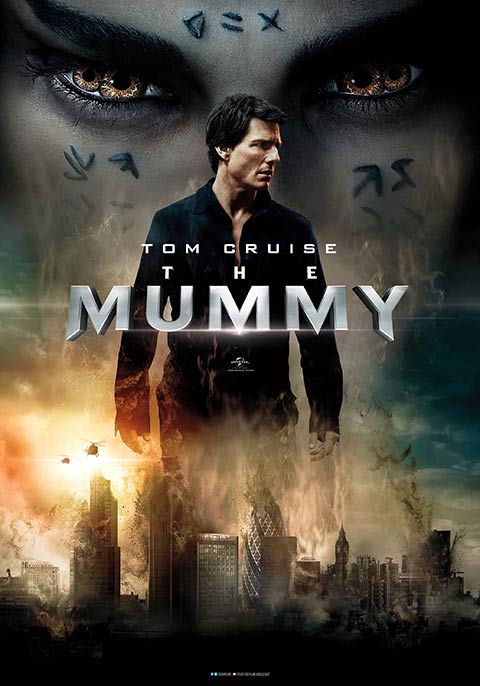
6) The Mummy
I wish I could tell you what happened here. The original script for this movie was good. I swear it! I think once Tom Cruise got involved, nobody knew what to do. On the one hand, Tom Cruise didn’t work at all for what they were imagining. But do you really turn down the star power of Tom Cruise? It’s a little like if Tom Cruise asks you out. You have to go out with him. I mean, he’s Tom Cruise! But then you end up having to endure everything that comes with Tom Cruise. The whirlwind of his career, the media infatuation, his freaky religious views. The Mummy could never figure out if it was a Mummy film or a Tom Cruise film. I so wanted to enjoy this but it imploded quickly. Hash tag bring back Brandon Fraser.

5) Valerian
Poor Luc Besson. This one is hard for me. You’ve wanted to make a movie for 50 years. 50 years! And when you finally do, it’s not just bad. It’s horrible. This is why art is so frustrating. You’d think that having that much time to build something and think about something and write the backstories and the ideas and all of that – you’d come up with something incredible. Maybe this is an example of someone having so many ideas he got lost in the weeds. And then of course there’s the argument that Luc Besson is simply a bad writer. Fair. Whatever the case, everything with this movie was wrong. Worst casting of the year didn’t help matters.
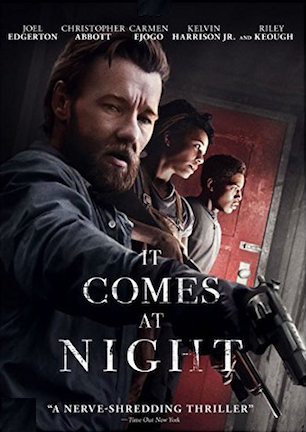
4) It Comes at Night
It Comes at Night might have worked better if something had actually come at night.

3) Alien Covenant
The best thing about Alien Covenant is listening to post-film Ridley Scott’s interviews where he speaks about making eight more Alien movies. Dude, Ridley. It’s over, man. This movie was soooo bad. It was like the studio gave them 100 million dollars, they shot the first act, and then realized they only had 20 million left. So they cobbled together a single set and made a student-film where the main character, an android no less, made love to himself with a flute. Let’s be honest. This franchise died awhile ago. But can we finally say this is it? Oh wait. Disney just bought Fox. Never mind.

2) The Last Jedi
I’ve never seen a more selfish act by a film director in my life. Rian Johnson never had any intention of making a Star Wars movie. He only ever intended to make a Rian Johnson movie. Everything he does in this film is meant to serve his own interests. He never once considers the most faithful audience in the history of film. Listening to him defend his choices (In response to Luke throwing the lightsaber over his shoulder: “It was the only honest choice available.”) shows us just how limited his writing skill is. It’s funny. Two years ago I tried to warn everyone that Johnson was a terrible choice for a Star Wars film. But I just thought he was going to make a bad Star Wars movie. I had no idea he would destroy the most iconic hero in movie history in the process. (this movie is starting to implode at the box office btw – it’ll be interesting to see how Kathleen Kennedy spins it)
1) Beatriz At Dinner
How is it, you ask, that there’s a movie out there you actually hated more than The Last Jedi, Carson!? Welcome to Beatriz at Dinner. This is a movie that had a great setup. Great movies are about contrast, conflict, juxtaposition. Beatriz at Dinner had all of that. A poor Mexican masseuse-healer gets stuck at a rich client’s home for the night, which happens to be the night a Rupert Murdoch like figure is coming over for dinner. The movie starts off perfectly. I’m telling you. I was watching this and thinking, “Why isn’t this film being mentioned in the Oscar race? Why aren’t John Lithgow and Salma Hayek getting Oscar noms?” And then…. I can’t even tell you what happened. A brilliantly crafted screenplay turned into a giant pile of garbage. This film has one of the worst endings to the best beginnings that I’ve ever witnessed. I’ve never felt more betrayed and frustrated by a film.
CARSON’S FAVORITE MOVIES OF 2017

10) Wonder Woman
Gal Gadot is the greatest actress of our generation. Okay, maybe that’s pushing it. But she’s so damn charming. And Chris Pine is so damn charming also. And together they’re charming squared. They have the kind of chemistry you get once a year in Hollywood. Was the plot perfect? Nah. Was the villain perfect? Nah. But the setting was unique and the movie was fun, dammit. I love that this is only going to give us more Gal Gadot, starting with the number one script on this year’s Black List, Ruin.
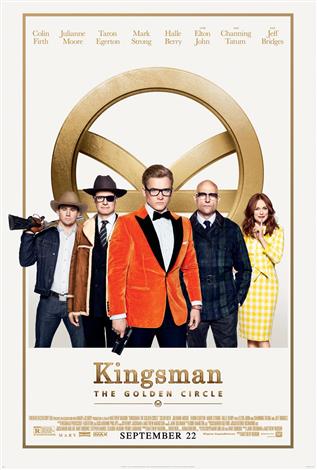
9) Kingsman 2
You guys are probably looking at me and going, “I’m sorry-scuse-me-whaaaa?” I’ve never mentioned this franchise on the site before. But I just watched this film and holy bonkers! This is the craziest movie you will see all year. It’s absolutely NUTS! You have Julianne Moore grinding people up to make burgers. In a hidden Aztec enclave with a 50s movie theater and diner. I threw this on for background watching and it quickly turned into a marquee showing at the Casa de Carson. Loooovvvvved it!

8) The Disaster Artist
Over the last couple of weeks, I’ve been listening to a lot of James Franco interviews promoting this film. Here’s a fun fact. When Franco came to General Hospital and said he wanted to be on a season of their show, they moved planets to appease him. But scheduling was tough. Franco was filming a movie in New York at the time. So what they did was they flew Franco in every Friday after his movie shoot, and Franco would shoot ALL OF HIS GENERAL HOSPITAL SCENES for the next month in one day/night. He said that he would routinely shoot over 100 script pages A DAY. That’s an entire feature in a day, lol! Anyway, who better to direct and star in a movie about the worst movie ever made, and spend the production in character as the character he’s playing, than James Franco. I love everything about this movie, both the movie itself and all the stories surrounding it. Oh, and get this. The Room is finally getting a wide release! After 15 years, Tommy Wiseau’s dream is finally coming true!

7) Dunkirk
Dunkirk is the most bold studio release of the year. It tells its story out-of-order and with little dialogue, yet manages to be captivating throughout the majority of its running time. I went into this film grumbling about the setup, which didn’t seem that interesting for a war film (compared to, say, storming the beaches of Normandy). But the film taught me that the real war is often fought in between the big battles. And it captured one of World War 2’s biggest “in between moments” with some beautiful cinematography and sound design. The film I’d most recommend on this list seeing in the theater.

6) Donald Cried
One of the things I’ve become great at over the years is sniffing out all the movies that have a chance of being good. If I haven’t at least heard of it, chances are it’s terrible. I’d never heard of Donald Cried. And I only checked it out because of Itunes’ “Filmmakers to Watch” feature. This film probably has the best character of the year in it. Donald is like a grown up version of Napoleon Dynamite, but with more edge. The movie takes place when Donald’s childhood best friend, who’s now rich and successful, comes home for the weekend and gets stuck hanging out with Donald. If you’re into quirky dark humor, I DEFINITELY recommend this.

5) Spider-Man: Homecoming
Everything they did wrong in the previous Spider-Man films, they did right here. They brought a youthful enthusiasm back to the main character. They gave us a villain we actually liked for once in a Spider-Man movie. They flipped some of the characters on their head. They had some cool set-pieces, like the Washington Monument sequence. Oh, and let’s not forget that twist. Spider-Man is so back I wanna wrap myself in a peanut-butter flavored web and eat my way out. No idea what that means.

4) Thor: Ragnarok
If you would’ve told me at the beginning of the year that I’d have three super-hero movies in my Top 10, I’d tell you you were Girl Interrupted insane. I don’t know if that’s because I’ve finally come around to the genre or that there are so many comic book movies being released that I don’t have a choice. But this is another super hero film that I loved. You can probably spot a theme here. All of these super-hero movies on my list were fun, made you feel good, and honored their fan base. Probably the best thing to come out of this movie is the unlimited talent that is Taika Waititi. Taika proved that you can both bring your own vision to an established franchise and satisfy the fan base at the same time. Now come make a Star Wars movie, Taika! #Taika4Yoda

3) Columbus
You guys have heard me talk about this film already. If Thor: Ragnarok is non-stop thrills and action, Columbus is non-stop shots of buildings and quiet conversations. Sound boring? I suppose it could be to some. But if you love cinematography and minimalism, want to meet one of the best young actresses around, and escape for a couple of hours from the 24 hour bombardment of family/work/news/internet, Columbus is your film.
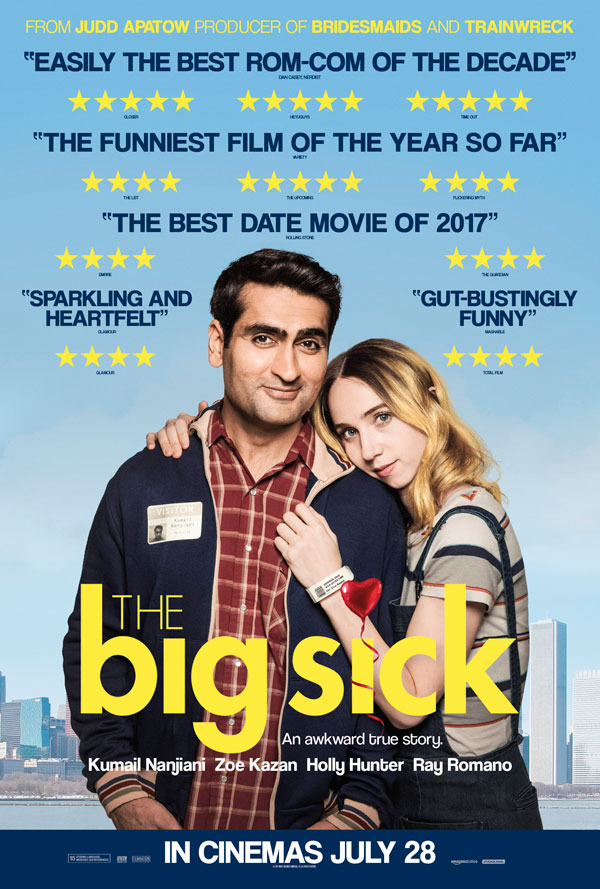
2) The Big Sick
I resisted The Big Sick for as long as I could. It was the only movie in my Top 10 list that I felt there was a good chance I’d hate. It just felt like another one of those, “Oh, my culture is different from your culture, yuk yuk yuk” romantic comedies. But it wasn’t that at all. The writer, Emily Gordon, cleverly switches the female lead out, replacing her with the parents, giving the story an unexpected jolt. They say that it’s impossible to replicate great films because every great film is lightning in a bottle. Well, they caught the 1.21 gigawatt version of a lightning bolt in this bottle. The movie doesn’t have a single flaw.

1) Good Time
I didn’t think filmmaking like this happened anymore. I thought it died in the 90s. But that kinetic risk-taking let’s push the boundaries style that brought us filmmakers like Quentin Tarantino and Danny Boyle is back with the Safdie Brothers. The hardest thing to do in any movie is to consistently surprise the audience, yet make every one of those surprises feel like they couldn’t have gone any other way. Good Time embodies that philosophy throughout. There are so many scenes in this movie that are better than all of the best scenes you’ve seen this year. The directing is great. The acting is great. The soundtrack is superb. I loved this movie so much! Go watch it!


